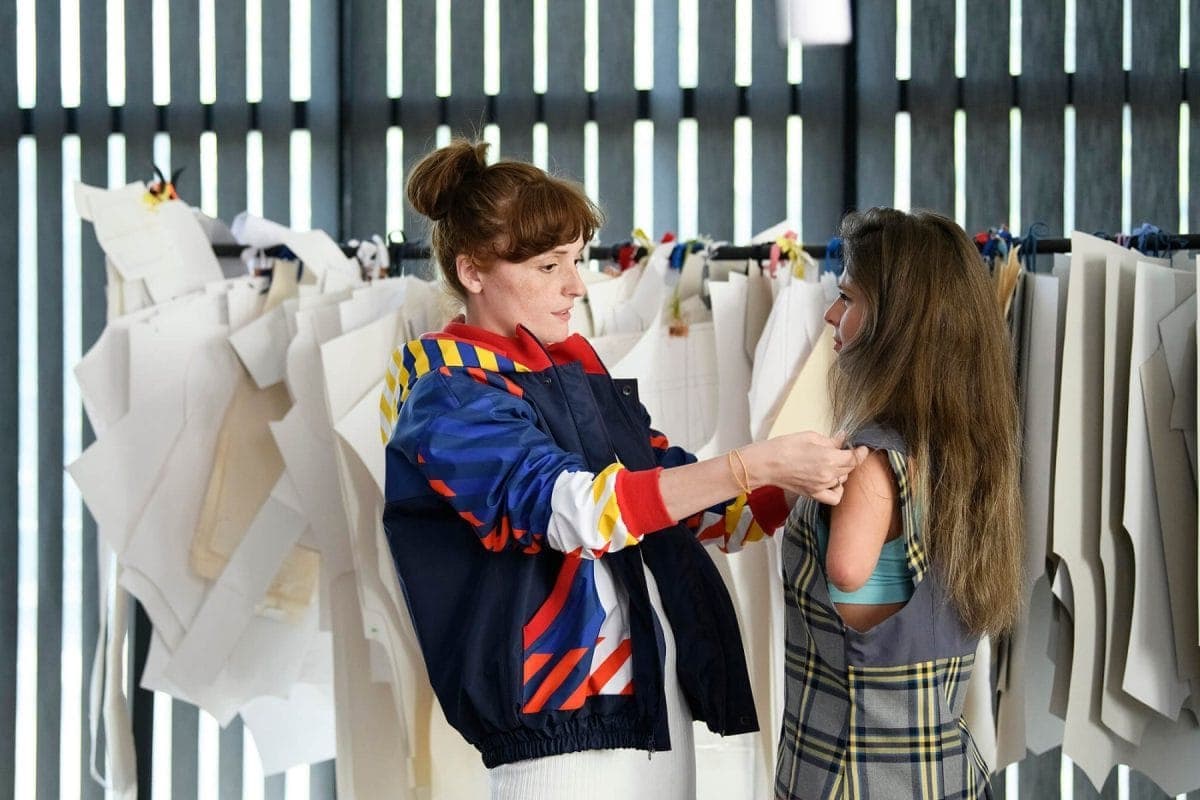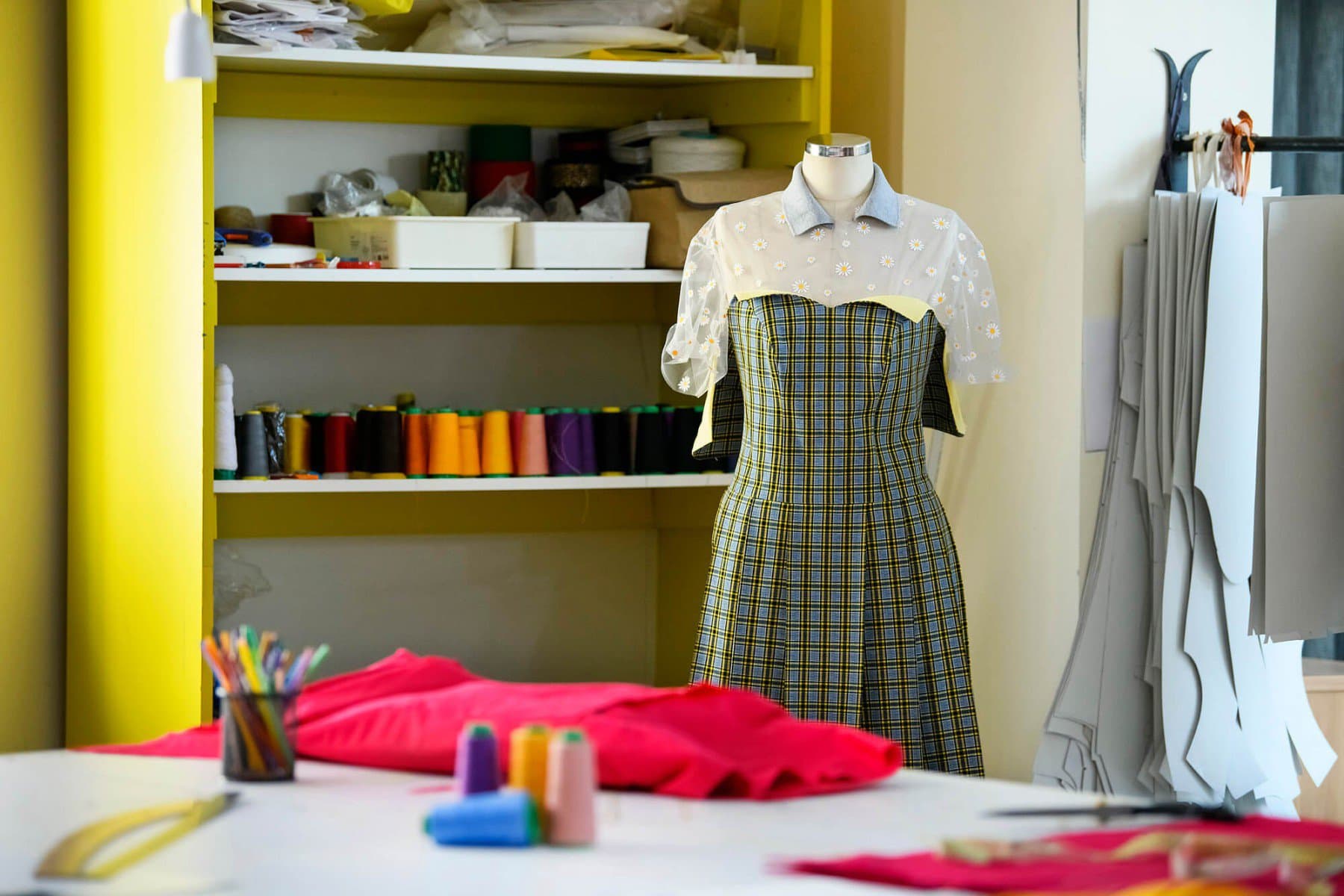You are currently viewing a placeholder content from Youtube. To access the actual content, click the button below. Please note that doing so will share data with third-party providers.
More InformationThe Georgian fashion label Kombinizona has a comprehensive take on inclusion. In addition to producing fashion for persons with disabilities and pregnant women, fifty percent of the factory employees have a disability. In recent years, the young company has risen to become a fashion label with a pioneering role and strong values.
With a borrowed sewing machine, a ten-year plan, and a special idea – namely to produce clothing that utilises the therapeutic effect of colour perception– the fashion label Kombinizona started in 2017. With tremendous success! It only took three weeks for the first collection of the young label to be sold out. The label produces fashion that founder Gano Melitauri describes as inclusive: maternity clothes and clothes for persons with disabilities. Four years later, Gano and her business partner and husband Kakhaber Gagnidze employ more than seventy people – half of them persons with disabilities. That is remarkable in a country where just one third of persons with disabilities are employed. Only a fraction of them – not even five per cent – are employed on contracts subject to social insurance contributions. Across the EU, the figure is seven times higher.
Georgia ratified the United Nations Convention on the Rights of Persons with Disabilities in 2014. But unemployment, one of the country’s biggest problems in terms of inclusion, has not changed much since then. Above all, Georgia’s infrastructure is hardly oriented to the needs of persons with disabilities. Even the factory where Kombinizona has started work on the collection is not equipped to be fully accessible. “We don’t have suitable conditions for wheelchair users,” explains Gano. But while that is apparently reason enough for many companies not to employ persons with mobility impairments Kombinizona has found another solution: working from home. And that was long before Europe and the rest of the world switched to decentralised work during the pandemic.

Companies must take responsibility
What motivates Gano and her partner to take over a pioneering role here? The answer is quite simple, says Gano: “Companies have a great responsibility towards persons with disabilities.” Therefore, companies should create opportunities to employ them. “It doesn’t matter if a person is in a wheelchair or walking. Every person is an individual with their respective strengths.”
But taking on responsibility can also be exhausting, Gano admits. “Recruiting staff is quite time-consuming,” she says. “It is a complicated process to reach the people we are looking for with our job advertisements.” Everyone who applies and is eligible is invited for a personal interview – which means that sometimes hundreds of interviews are conducted before deciding on a candidate. The criteria are the same for everyone: “We choose people based on their skills, experience, and values,” Gano explains.
Values are also very important for Lika Chachibaia. “Kombinizona exactly describes my character,” says the 25-year-old Paralympic athlete, whom Gano discovered for Kombinizona as an employee and model. By this, Lika means above all (cultural) openness to the world, a quality that is important to her because of her history. In an accident, the then16-year-old lost an arm. “I don’t necessarily need two hands, and my disability doesn’t stop me from doing what I want.” She has decided to live an active live – as an athlete, but also as a person who wants to implement her ideas and contribute her talents and creativity.
Employees have priority – even in COVID times
But in spring 2020, the COVID-19 pandemic hit. That was the worst time of her life, Lika recounts. “I was sitting at home isolated with nothing to do. That time was hell.” For persons with disabilities, it was especially hard, Lika is sure. “We always try to live an active life. That is exactly what has been taken away from us.” Now Lika, just like her colleagues, benefits from the fact that Gano and her partner always put the people in their company first. “Our main task was to keep the jobs and thereby provide security for our team,” says Gano looking back. That was the biggest challenge.

They not only managed to survive the worst phase of the pandemic – a small miracle for such a young company at the time. They were even able to use this time to grow beyond themselves and social boundaries. “We immediately made the crazy decision to give our employees the machines to take them home.” In just two days, the company had launched a new product line, “Alikapi”, and started making medical equipment such as masks and gowns. They donated thirty per cent of the profit from selling medical equipment and gave away a large number of masks for free to persons with disabilities.
„But we quickly realised that we could no longer meet the increased requirements with our equipment,” Gano recalls. At this point, the Clusters4Development project stepped in, funded by the EU and the German Government and implemented by Deutsche Gesellschaft für internationale Zusammenarbeit (GIZ). With this support, more machines could be purchased, and, above all, an additional fifty women could be employed as skilled workers – including many with disabilities. Gano knows: Kombinizona has been able to overcome the crisis set off by COVID-19 also due to the help of the GIZ project. She is grateful for that – also because she still has a lot planned for her life and Kombinizona.